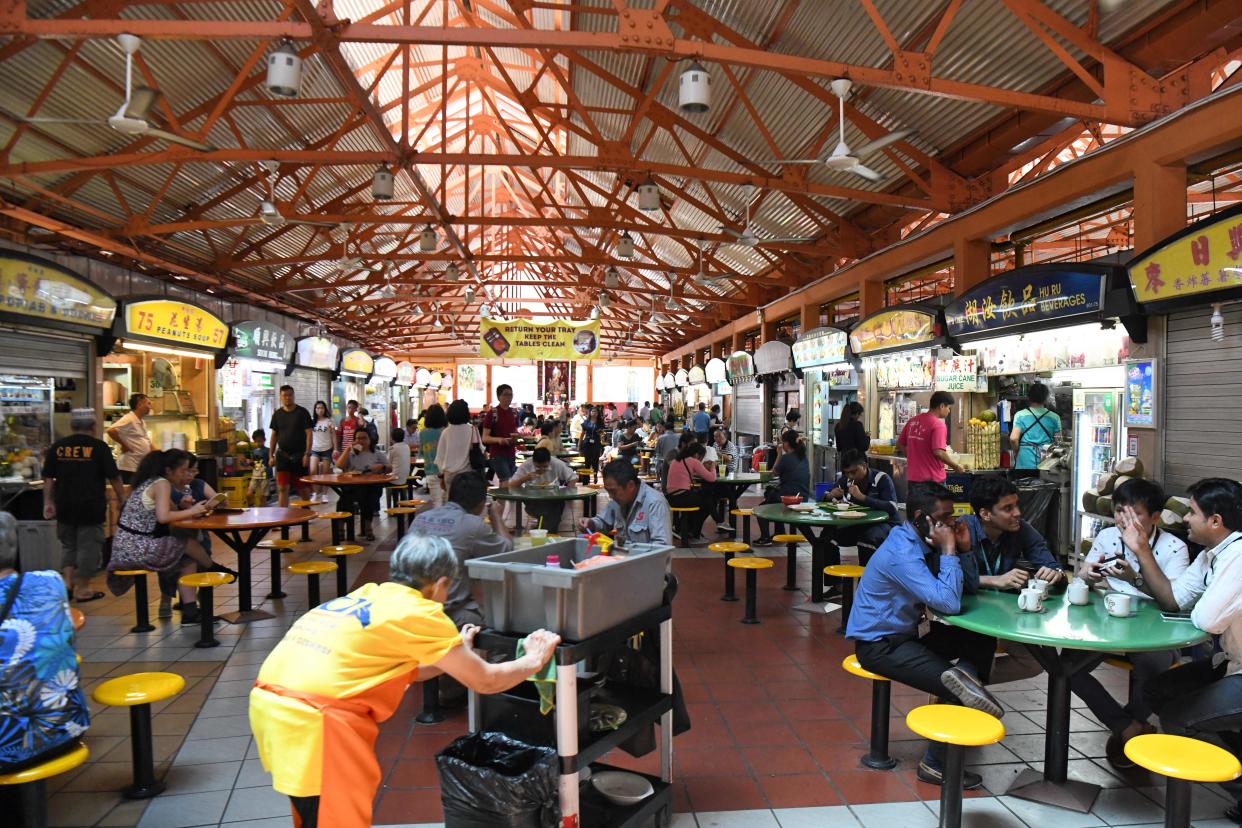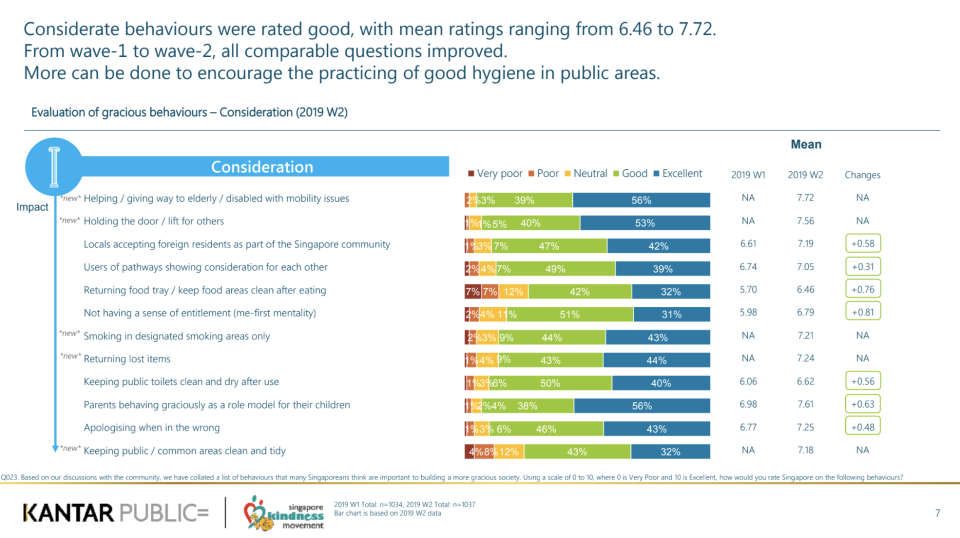Be more civic-minded by sharing tables, practising good hygiene: Singapore Kindness Movement

SINGAPORE — More can be done to encourage sharing of tables and good hygiene practice in public places in order to curb the “me-first mentality” among Singaporeans.
According to findings from the latest Graciousness Survey by the Singapore Kindness Movement (SKM), respondents gave the lowest average scores out of 10 for the following three behaviour traits: returning food trays or keeping food areas clean after eating (6.46), keeping public toilets clean and dry after use (6.62) and not having a sense of entitlement or a “me-first mentality” (6.79).
Helping or giving way to the elderly or disabled with mobility issues was rated the highest at 7.72, the survey findings released on Monday (24 June) also found.
When asked by reporters about “chope-ing”, a colloquial term for reserving an item or seat typically for oneself, SKM’s associate general secretary Cesar Balota said there is reason to be encouraged by recent discussions over the issue.
“Some people have actually gone out of their way to state their reasons, as nicely as they could...what if the (patrons) are elderly or alone?” he added. “All these discussions going on, have fortunately ascended from - if you want to call it - attacking each other; they're trying to find common ground and that's good.”
The act of “chope-ing”, particularly seats in public eating spaces, recently came into the spotlight following divided reactions among Singaporeans on the aim of the Anti-Chope Movement, with some feeling that it is part of local culture and within their rights, while others acknowledging it as an uncourteous act that should not be condoned.
The initiative, which was formed in April last year, attempts to correct what it describes as “ungracious” behaviour by leaving a “please don’t chope” card on top of items used to reserve seats in public eating spaces.
It was among 22 ground-up movements and individuals to be inducted into the SKM’s Kindred Spirit Circle last month.

SKM’s general secretary Dr William Wan said the “chope-ing” issue is not “black and white”, and that initiatives to encourage the sharing of tables with strangers were “a middle ground”.
“In other words, we all need a place to eat, right? Even if you ‘chope’ for example, and, hopefully somebody is there, not just an umbrella and a tissue (packet),” said Dr Wan. “If I need a place, I can talk to somebody because I can't talk to an umbrella.”
For instance, as part of the SKM’s Be Greater Campaign, patrons spotted sharing their tables from 8 to 12 July across 143 Starbucks outlets islandwide will receive a special edition Starbucks Be Greater pin as well as a $1 off their next drink purchase.
It is a huge jump from only one outlet, Starbucks at Raffles City, participating in the inaugural campaign when it launched in July last year.
“It is about cultivating a culture that encourages the people to share the space they don't need,” said Starbucks Singapore general manager Patrick Kwok, who added that staff members are regularly reminded to encourage customers to share tables.
Dr Wan also called for improvements in driving etiquette and cleanliness in public eating places, such as hawker centres.
“Especially with (the submission to nominate Singapore’s hawker culture for the Unesco ‘intangible cultural heritage’ list), I wouldn’t be very proud of the culture of hawker centres if they are all so dirty,” he said.
This means more returning of trays and crockeries as well as leaving the space cleaner than before after meals, he added.
According to findings in a Public Cleanliness Satisfaction Survey released last month, 48.7 per cent of respondents said they clear their own food utensils at hawker centres most or all of the time, an increase from 35 per cent from 2017’s survey.
However, satisfaction with the cleanliness of hawker centres and other food outlets, including coffeeshops, food courts and wet markets, ranked the lowest among public spaces.
Balota noted that the “me-first mentality” is something Singaporeans need to be more mindful of - both offline and online where discussions can get heated and uncivil.
“We've gotten to where we are (progressing) very rapidly, because we did have to look out for ourselves and do the best we can...We need to recalibrate thinking a little bit. But doing the best that we can doesn't mean you have to step over somebody else,” he said.
“Everybody needs to be part of it, it probably needs to be part of civic education.”
The annual Graciousness Survey, conducted since 2008, provides behavioural insights and indicators on graciousness and kindness in Singapore, leading to targeted initiatives that aim to make the Republic a nicer, more pleasant place to live in.
A total of 2,071 respondents took part in the survey via face-to-face interviews over two waves, from 7 August to 14 September last year and from 18 February to 17 March.
Of these, 1,355 Singaporeans, 212 PRs and 504 Employment Pass, S-Pass and Work Permit holders participated.
Related stories:
19% of Singaporeans interact regularly with foreigners in social settings: survey
COMMENT: Want to be gracious at crowded food places? Chope lah!
Woman targets Singaporeans who 'chope' at eating places by placing message cards
Almost half of Singapore residents clear their food utensils at hawker centres: survey


